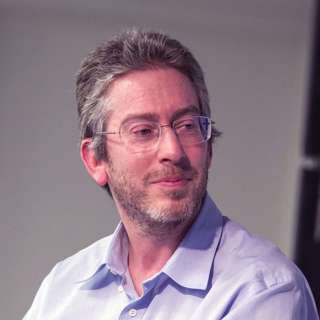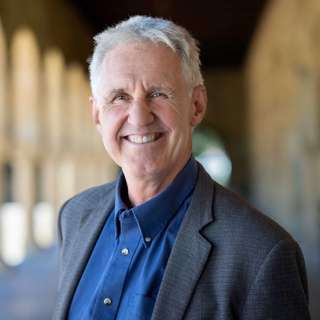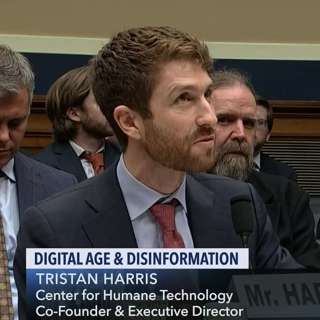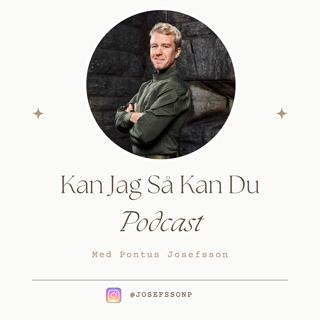
#173 – Jeff Sebo on digital minds, and how to avoid sleepwalking into a major moral catastrophe
"We do have a tendency to anthropomorphise nonhumans — which means attributing human characteristics to them, even when they lack those characteristics. But we also have a tendency towards anthropodenial — which involves denying that nonhumans have human characteristics, even when they have them. And those tendencies are both strong, and they can both be triggered by different types of systems. So which one is stronger, which one is more probable, is again going to be contextual. "But when we then consider that we, right now, are building societies and governments and economies that depend on the objectification, exploitation, and extermination of nonhumans, that — plus our speciesism, plus a lot of other biases and forms of ignorance that we have — gives us a strong incentive to err on the side of anthropodenial instead of anthropomorphism." — Jeff SeboIn today’s episode, host Luisa Rodriguez interviews Jeff Sebo — director of the Mind, Ethics, and Policy Program at NYU — about preparing for a world with digital minds.Links to learn more, highlights, and full transcript.They cover:The non-negligible chance that AI systems will be sentient by 2030What AI systems might want and need, and how that might affect our moral conceptsWhat happens when beings can copy themselves? Are they one person or multiple people? Does the original own the copy or does the copy have its own rights? Do copies get the right to vote?What kind of legal and political status should AI systems have? Legal personhood? Political citizenship?What happens when minds can be connected? If two minds are connected, and one does something illegal, is it possible to punish one but not the other?The repugnant conclusion and the rebugnant conclusionThe experience of trying to build the field of AI welfareWhat improv comedy can teach us about doing good in the worldAnd plenty more.Chapters:Cold open (00:00:00)Luisa's intro (00:01:00)The interview begins (00:02:45)We should extend moral consideration to some AI systems by 2030 (00:06:41)A one-in-1,000 threshold (00:15:23)What does moral consideration mean? (00:24:36)Hitting the threshold by 2030 (00:27:38)Is the threshold too permissive? (00:38:24)The Rebugnant Conclusion (00:41:00)A world where AI experiences could matter more than human experiences (00:52:33)Should we just accept this argument? (00:55:13)Searching for positive-sum solutions (01:05:41)Are we going to sleepwalk into causing massive amounts of harm to AI systems? (01:13:48)Discourse and messaging (01:27:17)What will AI systems want and need? (01:31:17)Copies of digital minds (01:33:20)Connected minds (01:40:26)Psychological connectedness and continuity (01:49:58)Assigning responsibility to connected minds (01:58:41)Counting the wellbeing of connected minds (02:02:36)Legal personhood and political citizenship (02:09:49)Building the field of AI welfare (02:24:03)What we can learn from improv comedy (02:29:29)Producer and editor: Keiran HarrisAudio Engineering Lead: Ben CordellTechnical editing: Dominic Armstrong and Milo McGuireAdditional content editing: Katy Moore and Luisa RodriguezTranscriptions: Katy Moore
22 Nov 20232h 38min

#172 – Bryan Caplan on why you should stop reading the news
Is following important political and international news a civic duty — or is it our civic duty to avoid it?It's common to think that 'staying informed' and checking the headlines every day is just what responsible adults do. But in today's episode, host Rob Wiblin is joined by economist Bryan Caplan to discuss the book Stop Reading the News: A Manifesto for a Happier, Calmer and Wiser Life — which argues that reading the news both makes us miserable and distorts our understanding of the world. Far from informing us and enabling us to improve the world, consuming the news distracts us, confuses us, and leaves us feeling powerless.Links to learn more, summary, and full transcript.In the first half of the episode, Bryan and Rob discuss various alleged problems with the news, including:That it overwhelmingly provides us with information we can't usefully act on.That it's very non-representative in what it covers, in particular favouring the negative over the positive and the new over the significant.That it obscures the big picture, falling into the trap of thinking 'something important happens every day.'That it's highly addictive, for many people chewing up 10% or more of their waking hours.That regularly checking the news leaves us in a state of constant distraction and less able to engage in deep thought.And plenty more.Bryan and Rob conclude that if you want to understand the world, you're better off blocking news websites and spending your time on Wikipedia, Our World in Data, or reading a textbook. And if you want to generate political change, stop reading about problems you already know exist and instead write your political representative a physical letter — or better yet, go meet them in person.In the second half of the episode, Bryan and Rob cover: Why Bryan is pretty sceptical that AI is going to lead to extreme, rapid changes, or that there's a meaningful chance of it going terribly.Bryan’s case that rational irrationality on the part of voters leads to many very harmful policy decisions.How to allocate resources in space.Bryan's experience homeschooling his kids.Producer and editor: Keiran HarrisAudio Engineering Lead: Ben CordellTechnical editing: Simon Monsour and Milo McGuireTranscriptions: Katy Moore
17 Nov 20232h 23min

#171 – Alison Young on how top labs have jeopardised public health with repeated biosafety failures
"Rare events can still cause catastrophic accidents. The concern that has been raised by experts going back over time, is that really, the more of these experiments, the more labs, the more opportunities there are for a rare event to occur — that the right pathogen is involved and infects somebody in one of these labs, or is released in some way from these labs. And what I chronicle in Pandora's Gamble is that there have been these previous outbreaks that have been associated with various kinds of lab accidents. So this is not a theoretical thing that can happen: it has happened in the past." — Alison YoungIn today’s episode, host Luisa Rodriguez interviews award-winning investigative journalist Alison Young on the surprising frequency of lab leaks and what needs to be done to prevent them in the future.Links to learn more, summary, and full transcript.They cover:The most egregious biosafety mistakes made by the CDC, and how Alison uncovered them through her investigative reportingThe Dugway life science test facility case, where live anthrax was accidentally sent to labs across the US and several other countries over a period of many yearsThe time the Soviets had a major anthrax leak, and then hid it for over a decadeThe 1977 influenza pandemic caused by vaccine trial gone wrong in ChinaThe last death from smallpox, caused not by the virus spreading in the wild, but by a lab leak in the UK Ways we could get more reliable oversight and accountability for these labsAnd the investigative work Alison’s most proud ofChapters:Cold open (00:00:00)Luisa's intro (00:01:13)Investigating leaks at the CDC (00:05:16)High-profile CDC accidents (00:16:13)Dugway live anthrax accidents (00:32:08)Soviet anthrax leak (00:44:41)The 1977 influenza pandemic (00:53:43)The last death from smallpox (00:59:27)How common are lab leaks? (01:09:05)Improving the regulation of dangerous biological research (01:18:36)Potential solutions (01:34:55)The investigative work Alison’s most proud of (01:40:33)Producer and editor: Keiran HarrisAudio Engineering Lead: Ben CordellTechnical editing: Simon Monsour and Milo McGuireAdditional content editing: Katy Moore and Luisa RodriguezTranscriptions: Katy Moore
9 Nov 20231h 46min

#170 – Santosh Harish on how air pollution is responsible for ~12% of global deaths — and how to get that number down
"One [outrageous example of air pollution] is municipal waste burning that happens in many cities in the Global South. Basically, this is waste that gets collected from people's homes, and instead of being transported to a waste management facility or a landfill or something, gets burned at some point, because that's the fastest way to dispose of it — which really points to poor delivery of public services. But this is ubiquitous in virtually every small- or even medium-sized city. It happens in larger cities too, in this part of the world. "That's something that truly annoys me, because it feels like the kind of thing that ought to be fairly easily managed, but it happens a lot. It happens because people presumably don't think that it's particularly harmful. I don't think it saves a tonne of money for the municipal corporations and other local government that are meant to manage it. I find it particularly annoying simply because it happens so often; it's something that you're able to smell in so many different parts of these cities." — Santosh HarishIn today’s episode, host Rob Wiblin interviews Santosh Harish — leader of Open Philanthropy’s grantmaking in South Asian air quality — about the scale of the harm caused by air pollution.Links to learn more, summary, and full transcript.They cover:How bad air pollution is for our health and life expectancyThe different kinds of harm that particulate pollution causesThe strength of the evidence that it damages our brain function and reduces our productivityWhether it was a mistake to switch our attention to climate change and away from air pollutionWhether most listeners to this show should have an air purifier running in their house right nowWhere air pollution in India is worst and why, and whether it's going up or downWhere most air pollution comes fromThe policy blunders that led to many sources of air pollution in India being effectively unregulatedWhy indoor air pollution packs an enormous punchThe politics of air pollution in IndiaHow India ended up spending a lot of money on outdoor air purifiersThe challenges faced by foreign philanthropists in IndiaWhy Santosh has made the grants he has so farAnd plenty moreChapters:Cold open (00:00:00)Rob's intro (00:01:07)How bad is air pollution? (00:03:41)Quantifying the scale of the damage (00:15:47)Effects on cognitive performance and mood (00:24:19)How do we really know the harms are as big as is claimed? (00:27:05)Misconceptions about air pollution (00:36:56)Why don’t environmental advocacy groups focus on air pollution? (00:42:22)How listeners should approach air pollution in their own lives (00:46:58)How bad is air pollution in India in particular (00:54:23)The trend in India over the last few decades (01:12:33)Why aren’t people able to fix these problems? (01:24:17)Household waste burning (01:35:06)Vehicle emissions (01:42:10)The role that courts have played in air pollution regulation in India (01:50:09)Industrial emissions (01:57:10)The political economy of air pollution in northern India (02:02:14)Can philanthropists drive policy change? (02:13:42)Santosh’s grants (02:29:45)Examples of other countries that have managed to greatly reduce air pollution (02:45:44)Career advice for listeners in India (02:51:11)Producer and editor: Keiran HarrisAudio Engineering Lead: Ben CordellTechnical editing: Simon Monsour and Milo McGuireTranscriptions: Katy Moore
1 Nov 20232h 57min

#169 – Paul Niehaus on whether cash transfers cause economic growth, and keeping theft to acceptable levels
"One of our earliest supporters and a dear friend of mine, Mark Lampert, once said to me, “The way I think about it is, imagine that this money were already in the hands of people living in poverty. If I could, would I want to tax it and then use it to finance other projects that I think would benefit them?” I think that's an interesting thought experiment -- and a good one -- to say, “Are there cases in which I think that's justifiable?” — Paul NiehausIn today’s episode, host Luisa Rodriguez interviews Paul Niehaus — co-founder of GiveDirectly — on the case for giving unconditional cash to the world's poorest households.Links to learn more, summary and full transcript.They cover:The empirical evidence on whether giving cash directly can drive meaningful economic growthHow the impacts of GiveDirectly compare to USAID employment programmesGiveDirectly vs GiveWell’s top-recommended charitiesHow long-term guaranteed income affects people's risk-taking and investmentsWhether recipients prefer getting lump sums or monthly instalmentsHow GiveDirectly tackles cases of fraud and theftThe case for universal basic income, and GiveDirectly’s UBI studies in Kenya, Malawi, and LiberiaThe political viability of UBIPlenty moreChapters:Cold open (00:00:00)Luisa’s intro (00:00:58)The basic case for giving cash directly to the poor (00:03:28)Comparing GiveDirectly to USAID programmes (00:15:42)GiveDirectly vs GiveWell’s top-recommended charities (00:35:16)Cash might be able to drive economic growth (00:41:59)Fraud and theft of GiveDirectly funds (01:09:48)Universal basic income studies (01:22:33)Skyjo (01:44:43)Producer and editor: Keiran HarrisAudio Engineering Lead: Ben CordellTechnical editing: Dominic Armstrong and Milo McGuireAdditional content editing: Luisa Rodriguez and Katy MooreTranscriptions: Katy Moore
26 Okt 20231h 47min

#168 – Ian Morris on whether deep history says we're heading for an intelligence explosion
"If we carry on looking at these industrialised economies, not thinking about what it is they're actually doing and what the potential of this is, you can make an argument that, yes, rates of growth are slowing, the rate of innovation is slowing. But it isn't. What we're doing is creating wildly new technologies: basically producing what is nothing less than an evolutionary change in what it means to be a human being. But this has not yet spilled over into the kind of growth that we have accustomed ourselves to in the fossil-fuel industrial era. That is about to hit us in a big way." — Ian MorrisIn today’s episode, host Rob Wiblin speaks with repeat guest Ian Morris about what big-picture history says about the likely impact of machine intelligence. Links to learn more, summary and full transcript.They cover:Some crazy anomalies in the historical record of civilisational progressWhether we should think about technology from an evolutionary perspectiveWhether we ought to expect war to make a resurgence or continue dying outWhy we can't end up living like The JetsonsWhether stagnation or cyclical recurring futures seem very plausibleWhat it means that the rate of increase in the economy has been increasingWhether violence is likely between humans and powerful AI systemsThe most likely reasons for Rob and Ian to be really wrong about all of thisHow professional historians react to this sort of talkThe future of Ian’s workPlenty moreChapters:Cold open (00:00:00)Rob’s intro (00:01:27)Why we should expect the future to be wild (00:04:08)How historians have reacted to the idea of radically different futures (00:21:20)Why we won’t end up in The Jetsons (00:26:20)The rise of machine intelligence (00:31:28)AI from an evolutionary point of view (00:46:32)Is violence likely between humans and powerful AI systems? (00:59:53)Most troubling objections to this approach in Ian’s view (01:28:20)Confronting anomalies in the historical record (01:33:10)The cyclical view of history (01:56:11)Is stagnation plausible? (02:01:38)The limit on how long this growth trend can continue (02:20:57)The future of Ian’s work (02:37:17)Producer and editor: Keiran HarrisAudio Engineering Lead: Ben CordellTechnical editing: Milo McGuireTranscriptions: Katy Moore
23 Okt 20232h 43min

#167 – Seren Kell on the research gaps holding back alternative proteins from mass adoption
"There have been literally thousands of years of breeding and living with animals to optimise these kinds of problems. But because we're just so early on with alternative proteins and there's so much white space, it's actually just really exciting to know that we can keep on innovating and being far more efficient than this existing technology — which, fundamentally, is just quite inefficient. You're feeding animals a bunch of food to then extract a small fraction of their biomass to then eat that.Animal agriculture takes up 83% of farmland, but produces just 18% of food calories. So the current system just is so wasteful. And the limiting factor is that you're just growing a bunch of food to then feed a third of the world's crops directly to animals, where the vast majority of those calories going in are lost to animals existing." — Seren KellLinks to learn more, summary and full transcript.In today’s episode, host Luisa Rodriguez interviews Seren Kell — Senior Science and Technology Manager at the Good Food Institute Europe — about making alternative proteins as tasty, cheap, and convenient as traditional meat, dairy, and egg products.They cover:The basic case for alternative proteins, and why they’re so hard to makeWhy fermentation is a surprisingly promising technology for creating delicious alternative proteins The main scientific challenges that need to be solved to make fermentation even more usefulThe progress that’s been made on the cultivated meat front, and what it will take to make cultivated meat affordableHow GFI Europe is helping with some of these challengesHow people can use their careers to contribute to replacing factory farming with alternative proteinsThe best part of Seren’s jobPlenty moreChapters:Cold open (00:00:00)Luisa’s intro (00:01:08)The interview begins (00:02:22)Why alternative proteins? (00:02:36)What makes alternative proteins so hard to make? (00:11:30)Why fermentation is so exciting (00:24:23)The technical challenges involved in scaling fermentation (00:44:38)Progress in cultivated meat (01:06:04)GFI Europe’s work (01:32:47)Careers (01:45:10)The best part of Seren’s job (01:50:07)Producer and editor: Keiran HarrisAudio Engineering Lead: Ben CordellTechnical editing: Dominic Armstrong and Milo McGuireAdditional content editing: Luisa Rodriguez and Katy MooreTranscriptions: Katy Moore
18 Okt 20231h 54min

#166 – Tantum Collins on what he’s learned as an AI policy insider at the White House, DeepMind and elsewhere
"If you and I and 100 other people were on the first ship that was going to go settle Mars, and were going to build a human civilisation, and we have to decide what that government looks like, and we have all of the technology available today, how do we think about choosing a subset of that design space? That space is huge and it includes absolutely awful things, and mixed-bag things, and maybe some things that almost everyone would agree are really wonderful, or at least an improvement on the way that things work today. But that raises all kinds of tricky questions. My concern is that if we don't approach the evolution of collective decision making and government in a deliberate way, we may end up inadvertently backing ourselves into a corner, where we have ended up on some slippery slope -- and all of a sudden we have, let's say, autocracies on the global stage are strengthened relative to democracies." — Tantum CollinsIn today’s episode, host Rob Wiblin gets the rare chance to interview someone with insider AI policy experience at the White House and DeepMind who’s willing to speak openly — Tantum Collins.Links to learn more, highlights, and full transcript.They cover:How AI could strengthen government capacity, and how that's a double-edged swordHow new technologies force us to confront tradeoffs in political philosophy that we were previously able to pretend weren't thereTo what extent policymakers take different threats from AI seriouslyWhether the US and China are in an AI arms race or notWhether it's OK to transform the world without much of the world agreeing to itThe tyranny of small differences in AI policyDisagreements between different schools of thought in AI policy, and proposals that could unite themHow the US AI Bill of Rights could be improvedWhether AI will transform the labour market, and whether it will become a partisan political issueThe tensions between the cultures of San Francisco and DC, and how to bridge the divide between themWhat listeners might be able to do to help with this whole messPanpsychismPlenty moreChapters:Cold open (00:00:00)Rob's intro (00:01:00)The interview begins (00:04:01)The risk of autocratic lock-in due to AI (00:10:02)The state of play in AI policymaking (00:13:40)China and AI (00:32:12)The most promising regulatory approaches (00:57:51)Transforming the world without the world agreeing (01:04:44)AI Bill of Rights (01:17:32)Who’s ultimately responsible for the consequences of AI? (01:20:39)Policy ideas that could appeal to many different groups (01:29:08)Tension between those focused on x-risk and those focused on AI ethics (01:38:56)Communicating with policymakers (01:54:22)Is AI going to transform the labour market in the next few years? (01:58:51)Is AI policy going to become a partisan political issue? (02:08:10)The value of political philosophy (02:10:53)Tantum’s work at DeepMind (02:21:20)CSET (02:32:48)Career advice (02:35:21)Panpsychism (02:55:24)Producer and editor: Keiran HarrisAudio Engineering Lead: Ben CordellTechnical editing: Simon Monsour and Milo McGuireTranscriptions: Katy Moore
12 Okt 20233h 8min






















